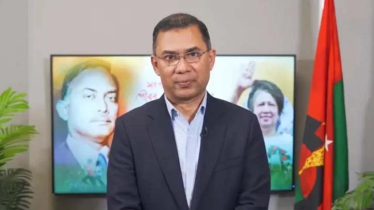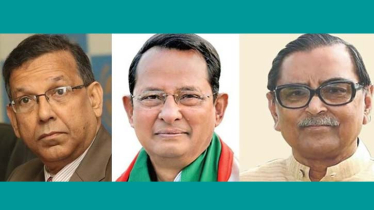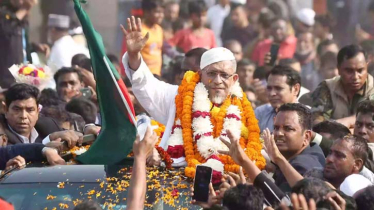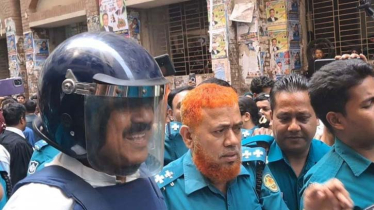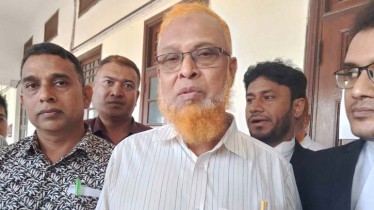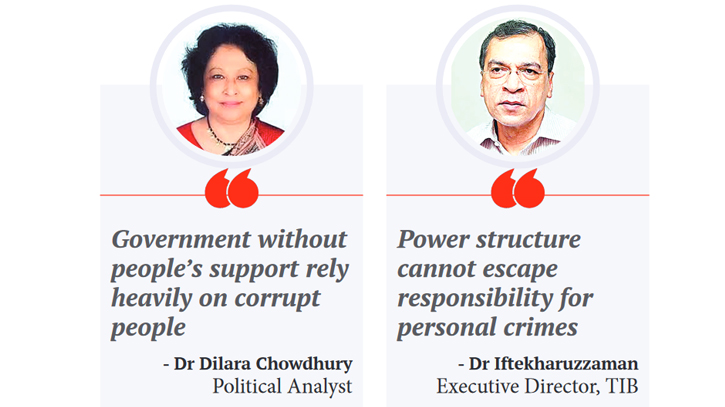
Photo: Messenger
The issue of corruption involving former Bangladesh Army Chief General Aziz Ahmed and former Inspector General of Police Benazir Ahmed is currently a topic of intense discussion both domestically and internationally. Leaders from the two major political parties in the country are engaged in a blame game over who should take responsibility for their corruption and irregularities. However, analysts assert that despite the statements from Awami League leaders and members of the Council of Ministers, the government cannot shirk its responsibility for these corruption cases.
The US sanctions on former army chief Aziz Ahmed and the Anti-Corruption Commission's (ACC) investigation into former police chief Benazir Ahmed's acquisition of substantial wealth are at the forefront of public discourse. Benazir Ahmed is accused of amassing considerable wealth by abusing his power while holding the highest position in the police force. Conversely, the former army chief faces allegations of abusing his authority to provide various benefits to his brothers.
The issue has sparked a nationwide uproar, with intense discussions taking place in the political arena over the past few days. The two main political parties, Awami League and BNP, are actively addressing the matter. BNP Secretary General Mirza Fakrul Islam Alamgir and other party leaders argue that the government cannot evade responsibility for the actions of these two former army chiefs. Despite long-standing accusations of torture and irregularities by opposition parties, the government has not addressed these concerns.
The BNP alleges that Benazir Ahmed and Aziz Ahmed not only amassed illegal wealth but also played a key role in sustaining the government through illicit means. According to the BNP, opposition parties and democracy-loving citizens have faced severe repression under their tenure. The party contends that the government overlooked these issues, allowing abuses of power and corruption to flourish unchecked.
Ruling Awami League General Secretary Obaidul Quader has stated that no organisation or government should be held accountable for the actions of individuals. Home Minister Asaduzzaman Khan Kamal echoed this sentiment, emphasising that the current government does not grant immunity to anyone who commits a crime. He assured that anyone found guilty will be prosecuted according to the prevailing laws of the country.
The issues surrounding former Bangladesh Army Chief General Aziz Ahmed and former Inspector General of Police Benazir Ahmed have now gained international attention. Recently, a journalist raised these concerns during a press conference with US State Department spokesperson Matthew Miller. This indicates the global reach of the discussion surrounding their alleged corruption and misconduct.
As discussions about the alleged corruption of former Bangladesh Army Chief General Aziz Ahmed and former Inspector General of Police Benazir Ahmed reach the highest levels, The Daily Messenger sought insights from prominent figures and analysts. Former professor and political analyst Dilara Chowdhury of Jahangirnagar University’s Department of Government and Politics offered her perspective.
Dilara Chowdhury emphasised that when any state force is involved in significant wrongdoing, it is natural for the government to bear responsibility, as these acts occurred under its tenure. She argued that former army chief Aziz Ahmed should face trial in two ways: first, through court martial for abuses of power during his tenure, and second, for corruption according to the country's prevailing laws. Chowdhury also asserted that the government is directly accountable for the actions and irregularities of Benazir Ahmed. Despite complaints against Benazir, the government failed to prosecute him, underscoring its responsibility in this matter.
Dilara Chowdhury highlighted that the absence of an accountable government in Bangladesh has led to an increase in such criminal activities, as the government relies heavily on individuals involved in these actions.
Dr. Iftekharuzzaman, the executive director of Transparency International Bangladesh (TIB), added that even if these are considered personal crimes, the current power structure cannot escape responsibility. He emphasised that this issue is only a small part of the broader corruption landscape in the country, and it remains to be seen how the situation will ultimately unfold.
Messenger/Fameema

